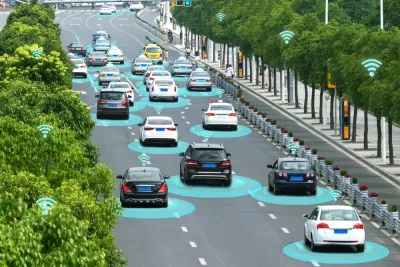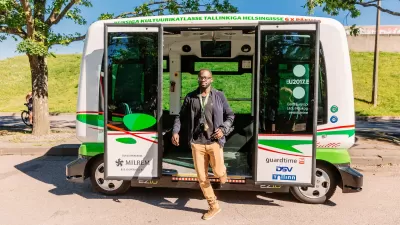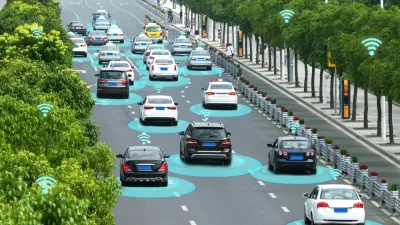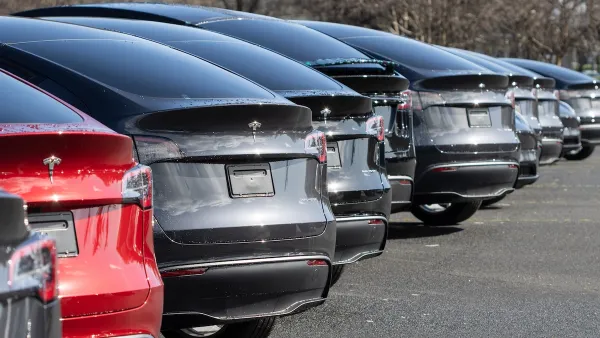Autonomous vehicles have many evangelists, but perhaps they need more skeptics.

Christian Wolmar writes a skeptical response to the rapid adoption of self-driving car enthusiasm by politicians, the public, and the journalists whose job it is to be skeptical of silver bullets.
If the more extreme claims were to be believed, we would already be adapting to the new reality of driverless cars. And what a reality it is supposed to be. We are told by the likes of Uber and Waymo, Google’s autonomous vehicles wing, that we will forego our individual cars for the delights of being transported in driver-less, shared-use electric vehicles reminiscent of the new dockless hire bikes or car–sharing companies like Zipcar. This is a strange conflation of three separate revolutions, electric, shared use and driverless, each of which on its own would have enormous societal impact and yet are presented by the tech companies and some politicians as desirable and inevitable. In truth, all three concepts are fraught with obstacles, not least the shortage of battery capacity in the world, people’s natural desire to own their own vehicles, and everyone’s understandable hesitance about putting their lives in the hands of a computer.
Wolmar writes after attending an autonomous vehicle exhibition in Stuttgart, where there was plenty of evidence for autonomous vehicle technology skepticism, whether or not there are many people willing or able to recognize it as such. To be fair however, Wolmar did encounter "more doomsayers than purveyors of the autonomous driving dream."
FULL STORY: The dream of driverless cars is dying

Planetizen Federal Action Tracker
A weekly monitor of how Trump’s orders and actions are impacting planners and planning in America.

Maui's Vacation Rental Debate Turns Ugly
Verbal attacks, misinformation campaigns and fistfights plague a high-stakes debate to convert thousands of vacation rentals into long-term housing.

San Francisco Suspends Traffic Calming Amidst Record Deaths
Citing “a challenging fiscal landscape,” the city will cease the program on the heels of 42 traffic deaths, including 24 pedestrians.

Defunct Pittsburgh Power Plant to Become Residential Tower
A decommissioned steam heat plant will be redeveloped into almost 100 affordable housing units.

Trump Prompts Restructuring of Transportation Research Board in “Unprecedented Overreach”
The TRB has eliminated more than half of its committees including those focused on climate, equity, and cities.

Amtrak Rolls Out New Orleans to Alabama “Mardi Gras” Train
The new service will operate morning and evening departures between Mobile and New Orleans.
Urban Design for Planners 1: Software Tools
This six-course series explores essential urban design concepts using open source software and equips planners with the tools they need to participate fully in the urban design process.
Planning for Universal Design
Learn the tools for implementing Universal Design in planning regulations.
Heyer Gruel & Associates PA
JM Goldson LLC
Custer County Colorado
City of Camden Redevelopment Agency
City of Astoria
Transportation Research & Education Center (TREC) at Portland State University
Jefferson Parish Government
Camden Redevelopment Agency
City of Claremont





























